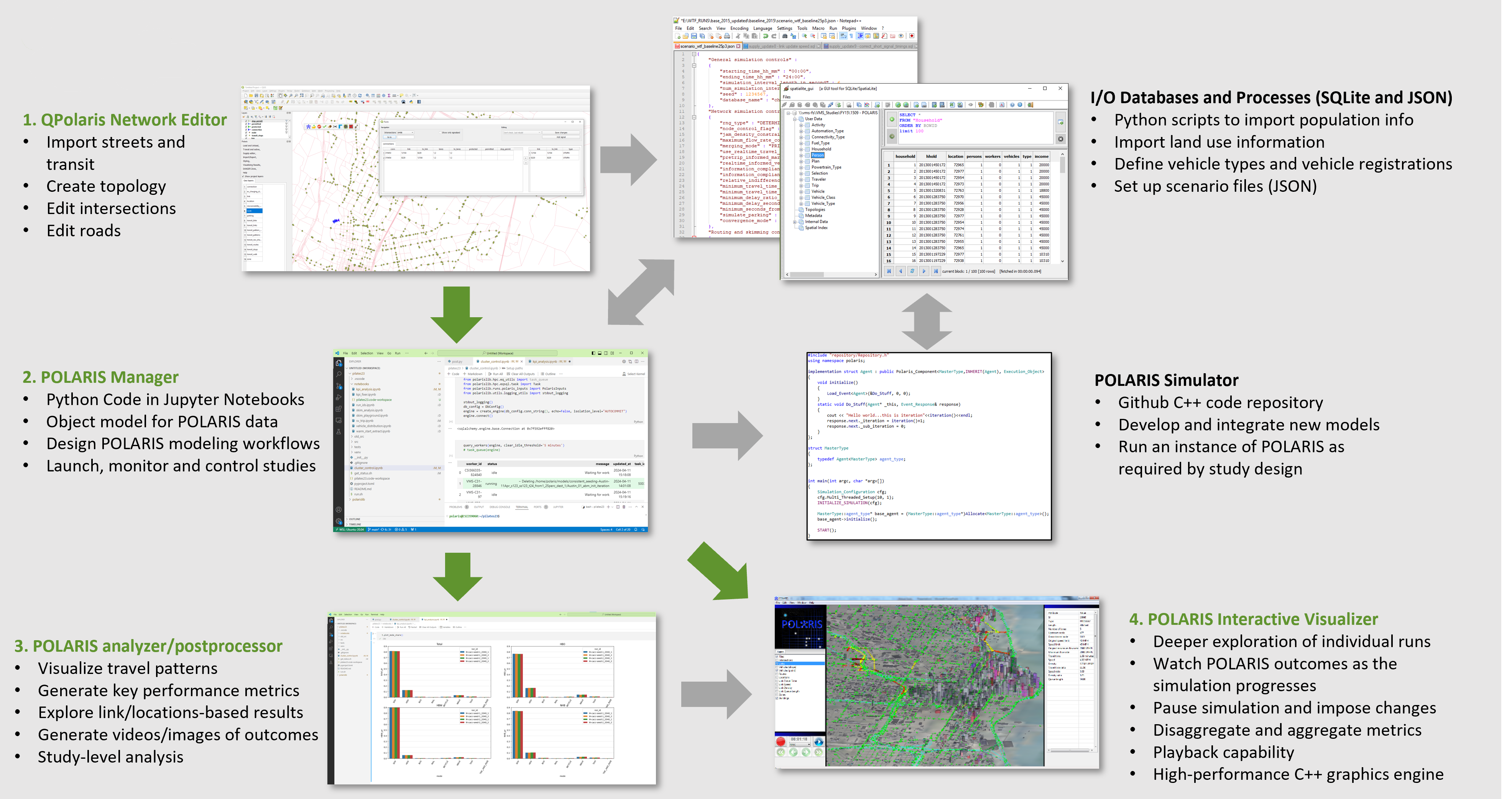POLARIS Studio Release
POLARIS Studio Launched to Provide Support for Running Large-Scale Transportation Simulations
POLARIS Studio, a new suite of supporting tools that surround the POLARIS transportation systems simulator, has been officially released with an open-source license and is now available for download through PyPI. POLARIS Studio is a suite of software tools designed to simplify the tasks of setting up model inputs, building modeling workflows out of multiple POLARIS runs, designing, launching, and managing studies, and visualizing outputs, as needed by the user. POLARIS Studio offers:
-
A tool dedicated to new mobility and energy. No other tool currently simulates traveler behavior, mode choice, traffic flow interactions, and detailed vehicle powertrain models (e.g., conventional to electric vehicles), along with supporting infrastructure for new mobility options across a wide range of metrics including mobility and energy.
-
A rich library of state-of-the-art models and scenarios. POLARIS Studio provides a flexible simulation framework and an extensive number of default travel behavior and transportation models and scenarios for users to run out of the box.
-
Open models and algorithms. POLARIS Studio’s models of travel behavior, optimization, and control strategies are in readily accessible and modifiable C++ code for Windows/Linux that can be overwritten using Application Programming Interfaces (APIs). The code is specifically designed to support high-performance computer (HPC) use, enabling simulations of a very large number of scenarios. POLARIS Studio users can access existing models to better understand the results as well as implement their own code through APIs to suit their needs.
-
High computational efficiency. POLARIS Studio requires just 4–8 hours to simulate 10 million agents at 100% population sampling (vs. multiple days at 5–10% sampling for competing tools).
-
A suite of supporting tools that enable transportation system model input file creation, maintenance, and editing; analysis and visualization capabilities; a standard object model and data architecture/exchange format; and a study management platform, which surround the core POLARIS simulation tool
POLARIS Studio has been developed and refined through extensive feedback from many deployment partners and other users of the core POLARIS simulation tool. The basic modules and usage patterns for the Studio are shown below. The POLARIS Studio now supports common use cases most relevant to licensed users of POLARIS—integrating data, setting up and running simulations, visualizing results, and running analyses to explore potential scenario outcomes.

In POLARIS Studio, users start by defining the inputs to the modeling system using the QPolaris network editor. The editor modifies a series of databases stored in an object model defined by the Polaris Manager, a series of Python modules that also provide building blocks to define and run studies comprising multiple POLARIS runs, and to launch and monitor those studies. Finally, after a study is completed, the results can be explored in the POLARIS analyzer/post-processor or in the POLARIS Interactive Visualizers.
Anyone interested in using POLARIS Studio can install it into a compatible version of Python from PyPI, which will enable the visualization and editing of existing POLARIS models. Running a POLARIS study will require licensing the POLARIS tool, which is freely available for academic research and to support U.S. Government funded research projects. Please see here for more information.